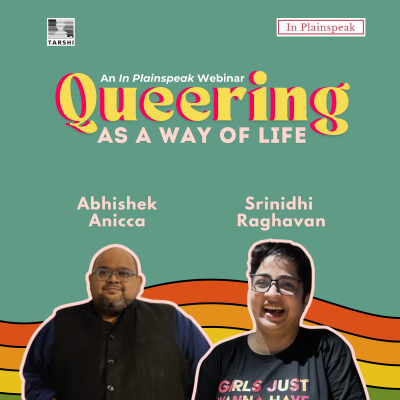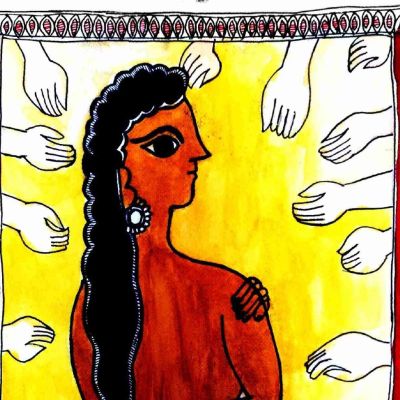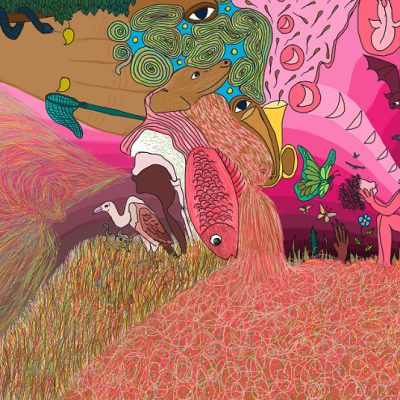Visual Corner
As we grow and experience intimate relationships, pleasure becomes taboo or is only okay as a performance for another person, rather than our right as human beings.
Just this month, Godrej DEI Lab has launched a video, Pride @Godrej to celebrate Pride as a year-round commitment to…
At TARSHI, we see queering as more than just an adjective; it’s a verb, an action that involves questioning accepted…
Aastha Khanna is India’s first intimacy coordinator who is making sure that a film’s vision is realised without flouting anyone’s boundaries, or leading to general awkwardness on set, especially when it comes to intimate scenes.
In a society where the very pursuit of erotic pleasure is often stigmatised, when sexual desires are often seen through the narrow lenses of penetrative sex and as means for reproduction, it is considered radical for an older woman who is already the mother of adult children to seek pleasure.
We found a 97% LoveMatch nearby! Find her and start your new life RIGHT NOW!!
For many people, fashion serves as a vehicle for expressing their unique identities, their political beliefs, and their sexual orientation.
What if we refused to assimilate? What if we collectively decided to dress in a way that made it so society could not render us invisible?
Women’s bodies are considered as symbols of izzat and abru (honour and dignity) making it the woman’s responsibility to ‘protect’ her sexuality, while at the same time, her sexuality is controlled by patriarchs.
In this fun and hilarious short video, watch Simmi’s mother’s reaction when Simmi returns home with a ‘baby’. Cover Image:…
This art collection bears the evocative title “Aching Palates”. Within its realm, each artwork embodies an emblematic act that accompanies…
Watch the romantic story of a Bengali couple to find out if Geetu will be successful in her passionate mission to fulfil the desire of her husband Amit.
For the last seven years, I have been working on a body of work titled Hotel Rooms themed around fluid male sexuality, mental health, queerness, and challenging deep-rooted societal gender binaries.
Body is born, as a collection of many parts, into the various collections of bodies. Different combinations or collections are projected onto various historical, spatial and temporal dimensions, out of our needs, desires and capabilities.
For transgender persons the body is a very critical juncture where a lot of trans politics happens, given the fact that a lot of our identities in terms of gender do not match how we see our bodies.















